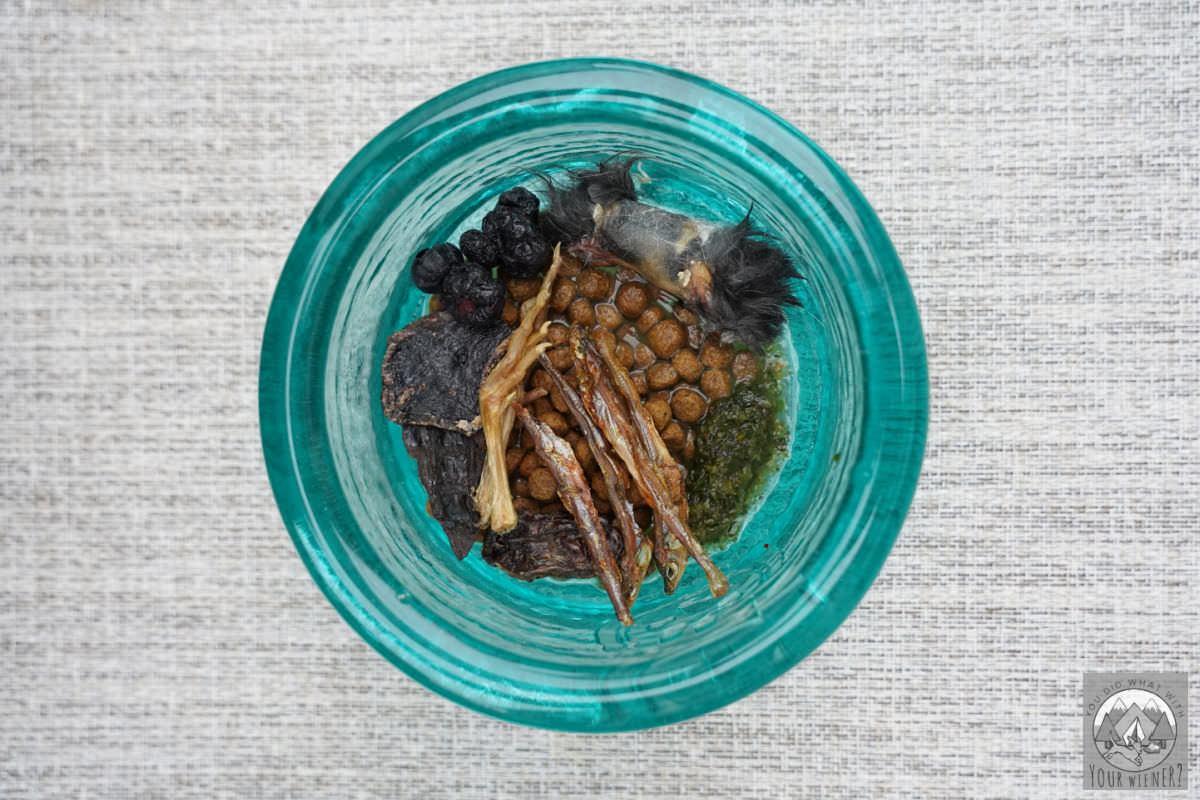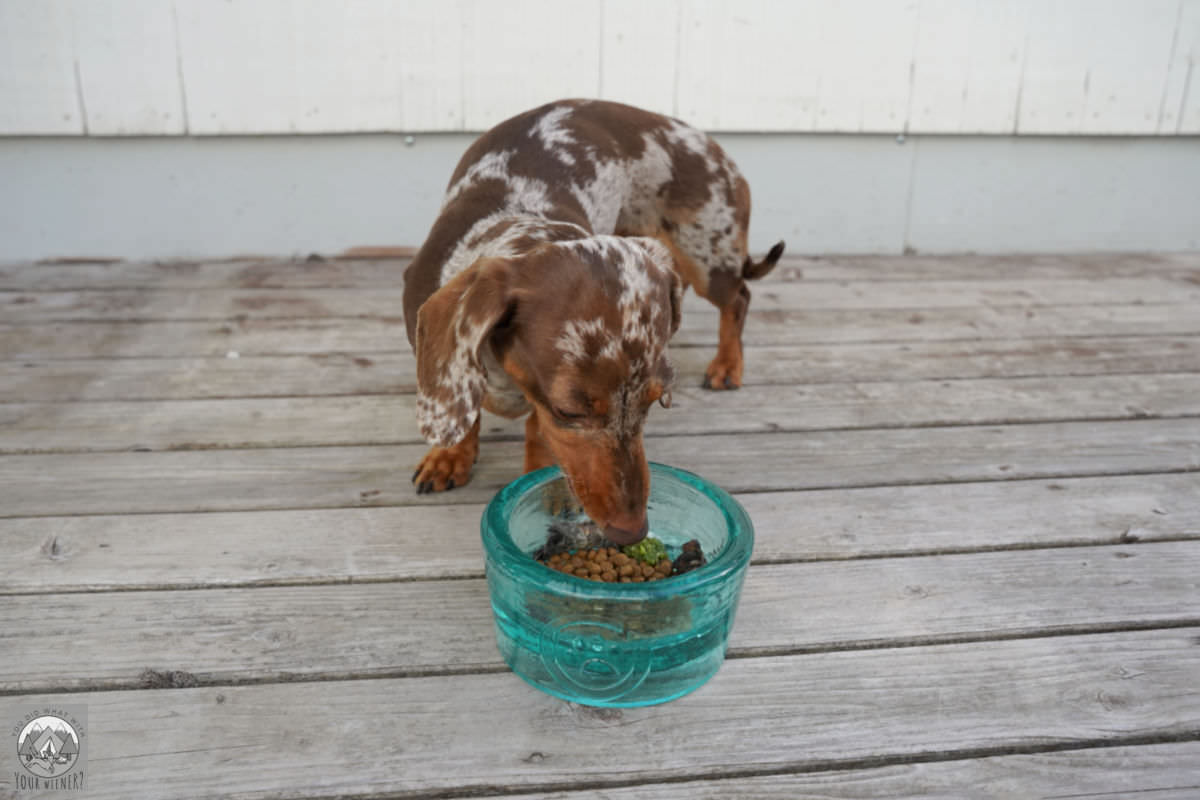Nourishing your furry companion is a responsibility that extends beyond filling their bowl. Incorporating fresh, wholesome food into your dog’s diet can unlock a treasure trove of health benefits, enhancing their well-being and enriching their culinary experience. From vibrant fruits and crisp vegetables to succulent meats, the world of fresh food holds a tantalizing array of flavors and nutrients that will elevate your dog’s health and happiness.
In this comprehensive guide, we’ll delve into the nutritional wonders of fresh food, explore the diverse options available, and provide practical tips on how to seamlessly integrate these culinary delights into your dog’s daily meals. Get ready to embark on a journey that will transform your dog’s diet and ignite their taste buds!
Health Benefits of Fresh Food for Dogs

Providing your dog with fresh food offers numerous health benefits, promoting overall well-being and vitality. Fresh food is rich in essential nutrients, vitamins, and minerals that are vital for optimal canine health.
Nutritional Value of Fresh Food
Fresh food contains a wide range of nutrients that are crucial for dogs’ health, including:
- Proteins: Essential for building and repairing tissues, supporting muscle growth, and providing energy.
- Fats: Provide energy, support cell growth, and aid in the absorption of vitamins.
- Carbohydrates: Provide energy and fiber for a healthy digestive system.
- Vitamins: Essential for various bodily functions, such as vision, immune system health, and metabolism.
- Minerals: Support bone and muscle health, nerve function, and fluid balance.
Role of Fresh Food in Weight Management
Fresh food can play a significant role in maintaining a healthy weight and preventing obesity in dogs. Fresh food is typically lower in calories and fat compared to processed dog food, making it an ideal choice for dogs who need to lose or maintain weight.
Additionally, the high fiber content in fresh food promotes satiety, making dogs feel fuller for longer periods, which can help reduce overeating and weight gain.
How to Incorporate Fresh Food into Your Dog’s Diet
Introducing fresh food into your dog’s diet can significantly enhance their health and well-being. However, it’s crucial to approach this transition gradually and thoughtfully.
Gradual Transition
Start by mixing a small amount of fresh food with your dog’s regular kibble or wet food. Gradually increase the proportion of fresh food over several days or weeks, allowing your dog’s digestive system to adjust.
Monitoring
Pay close attention to your dog’s response to the fresh food. If they experience any digestive upset, such as vomiting, diarrhea, or constipation, reduce the amount of fresh food or stop feeding it altogether.
Recommended Proportions
The ideal ratio of fresh food to other types of food in a dog’s diet depends on their individual needs. A good starting point is to offer 50-75% fresh food and 25-50% kibble or wet food. Adjust these proportions based on your dog’s age, activity level, and any specific health conditions.
Meal Planning and Recipes for Dogs with Fresh Food

Incorporating fresh food into your dog’s diet offers numerous health benefits. To ensure a balanced and nutritious meal, careful planning and preparation are crucial. This section provides a sample meal plan, homemade recipes, and tips for storing and preparing fresh food for your canine companion.
A well-balanced meal plan for dogs with fresh food should include a variety of ingredients to meet their nutritional needs. The following is a sample meal plan that you can adjust based on your dog’s size, age, and activity level:
Sample Meal Plan
- Breakfast: Oatmeal with blueberries and plain yogurt
- Lunch: Chicken with brown rice and mixed vegetables
- Dinner: Salmon with sweet potato and broccoli
In addition to a meal plan, you can also prepare homemade dog food using fresh ingredients. Here are a few simple recipes to get you started:
Recipes for Homemade Dog Food
- Chicken and Rice Stew: Boil 1 pound of boneless, skinless chicken breasts and shred. Add 1 cup of brown rice, 2 cups of water, and 1 carrot, 1 celery stalk, and 1 cup of green beans, all chopped. Simmer for 30 minutes, or until the rice is cooked.
- Salmon and Sweet Potato Casserole: Preheat oven to 350°F (175°C). Place 1 pound of salmon fillets in a baking dish. In a separate bowl, mix 2 cups of mashed sweet potato, 1/2 cup of plain yogurt, and 1 egg. Spread the mixture over the salmon and bake for 20 minutes, or until the salmon is cooked through.
When preparing fresh food for your dog, it’s important to follow proper storage and preparation guidelines to ensure its safety and quality:
Storing and Preparing Fresh Food for Dogs
- Storage: Store fresh food in an airtight container in the refrigerator for up to 3 days. You can also freeze fresh food for up to 2 months.
- Preparation: Always wash fruits and vegetables thoroughly before feeding them to your dog. Cook meat thoroughly to kill bacteria.
Considerations for Feeding Dogs with Fresh Food
Fresh food can be a great way to improve your dog’s health, but it’s important to be aware of the potential risks involved.One of the biggest concerns is bacterial contamination. Raw meat, in particular, can contain harmful bacteria such as Salmonella and E.
coli. These bacteria can cause vomiting, diarrhea, and even more serious health problems in dogs.To minimize the risk of bacterial contamination, it’s important to source fresh food from reputable suppliers. Look for suppliers who follow good hygiene practices and who can provide documentation of their food safety procedures.It’s
also important to handle and store fresh food properly. Raw meat should be refrigerated or frozen until it’s ready to be served. Cooked meat should be refrigerated within two hours of cooking.Finally, it’s important to monitor your dog closely for any signs of illness after eating fresh food.
If your dog develops any vomiting, diarrhea, or other health problems, stop feeding them fresh food and contact your veterinarian immediately.
Sourcing Fresh Food from Reputable Suppliers
When sourcing fresh food for your dog, it’s important to choose suppliers who follow good hygiene practices and who can provide documentation of their food safety procedures.Here are some things to look for when choosing a supplier:*
-*Good hygiene practices
The supplier should have a clean and sanitary facility. They should also follow good hygiene practices, such as washing their hands and equipment regularly.
-
-*Documentation of food safety procedures
The supplier should be able to provide documentation of their food safety procedures. This documentation should include information on how the food is sourced, processed, and stored.
-*Reputation
The supplier should have a good reputation for providing safe and high-quality food. You can read online reviews or talk to other dog owners to get feedback on different suppliers.
Outcome Summary
Incorporating fresh food into your dog’s diet is a transformative step that will not only enhance their health but also bring joy to their mealtimes.
By understanding the nutritional value of different fresh foods, gradually introducing them into your dog’s diet, and taking precautions to ensure food safety, you can unlock a world of culinary delights and well-being for your beloved companion. Remember, every fresh bite is a step towards a healthier, happier, and more flavorful life for your furry friend.
Frequently Asked Questions
Is fresh food better than commercial dog food?
Fresh food offers several advantages over commercial dog food. It is typically higher in moisture content, which can promote hydration and prevent urinary tract issues. Fresh food also provides a more natural source of nutrients, as it is not subject to the same processing and preservation techniques as commercial food.
Can I feed my dog fresh food every day?
Yes, you can feed your dog fresh food every day. However, it is important to transition your dog to a fresh food diet gradually to avoid digestive upset. Start by mixing a small amount of fresh food into your dog’s regular diet and gradually increase the amount over time.
What are some good sources of fresh food for dogs?
There are many different types of fresh food that you can feed your dog, including fruits, vegetables, and meats. Some good sources of fresh food for dogs include:




